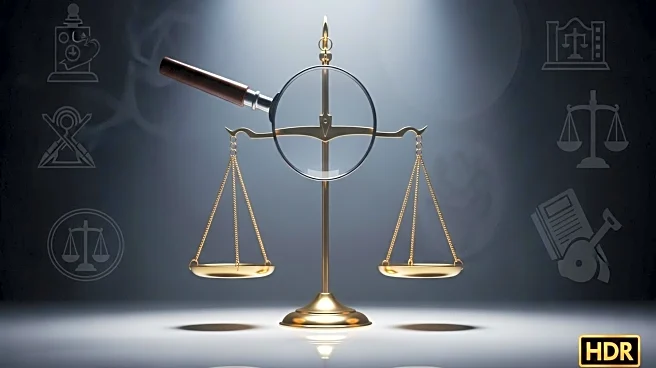What's Happening?
RxSight, Inc., a company listed on NASDAQ under the ticker RXST, is facing a securities fraud class action lawsuit filed by Bleichmar Fonti & Auld LLP and other law firms. The lawsuit, pending in the U.S. District Court for the Central District of California, alleges that RxSight and its senior executives violated federal securities laws. The complaint claims that between November 7, 2024, and July 8, 2025, RxSight failed to disclose critical issues such as adoption challenges and structural problems affecting the sales and utilization of its Light Adjustable Lens products. Additionally, the company is accused of overstating product demand and making misleading statements about its business prospects, leading to significant stock price declines.
Why It's Important?
The lawsuit against RxSight is significant as it highlights potential corporate governance and transparency issues within the company, which could affect investor confidence and market stability. The allegations of securities fraud suggest that investors may have been misled about the company's financial health and future prospects, resulting in financial losses. This case underscores the importance of accurate and transparent communication from publicly traded companies to their shareholders. The outcome of this lawsuit could have broader implications for RxSight's reputation and its ability to attract future investments.
What's Next?
Investors who purchased RxSight securities during the specified period have until September 22, 2025, to request the court to appoint them as lead plaintiffs in the case. The involved law firms, including the Law Offices of Frank R. Cruz, Bleichmar Fonti & Auld LLP, and the Rosen Law Firm, are encouraging affected investors to submit their information for potential representation. The legal proceedings will likely involve detailed examinations of RxSight's disclosures and business practices, which could lead to settlements or changes in corporate governance.
Beyond the Headlines
This lawsuit may prompt a closer look at the regulatory environment surrounding disclosures by publicly traded companies, potentially leading to stricter enforcement of securities laws. It also raises ethical questions about corporate responsibility and the duty of companies to provide truthful information to investors. The case could influence how other companies approach transparency and investor relations, aiming to avoid similar legal challenges.









